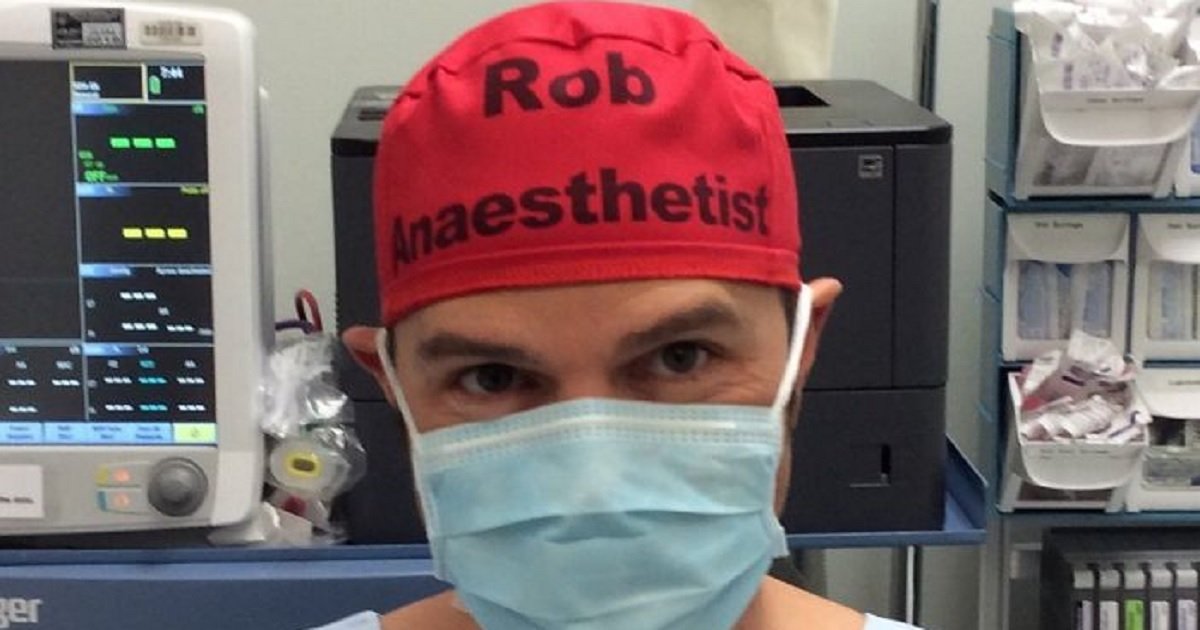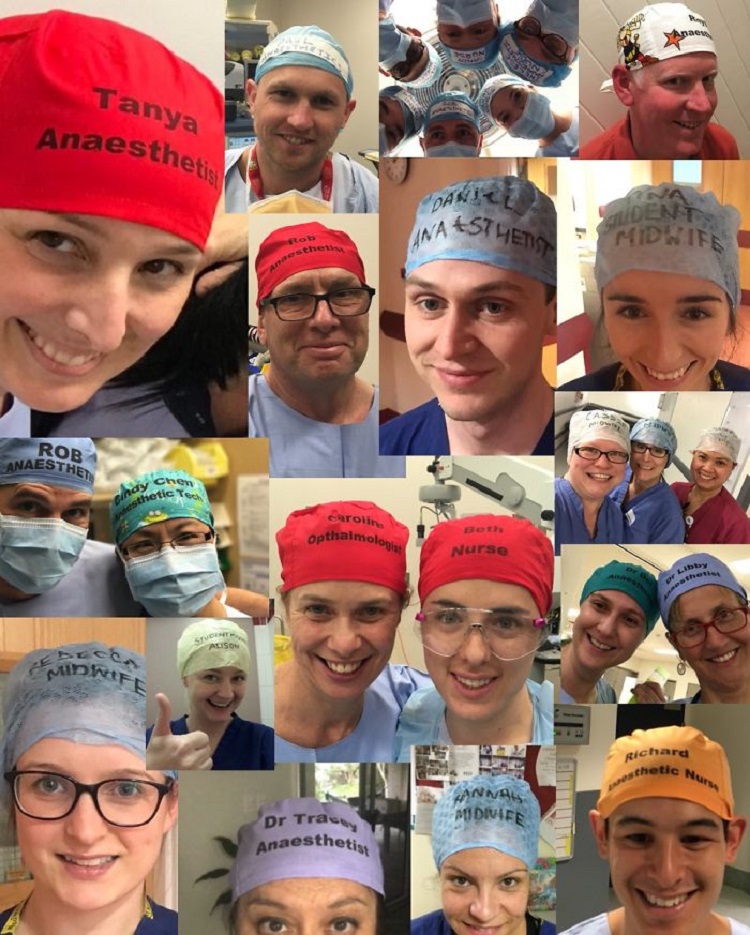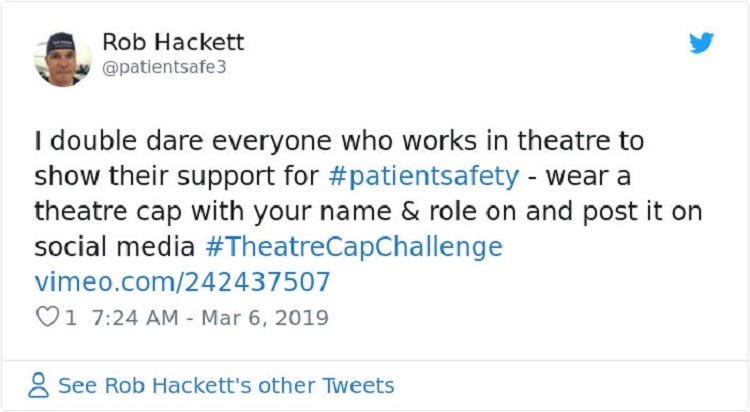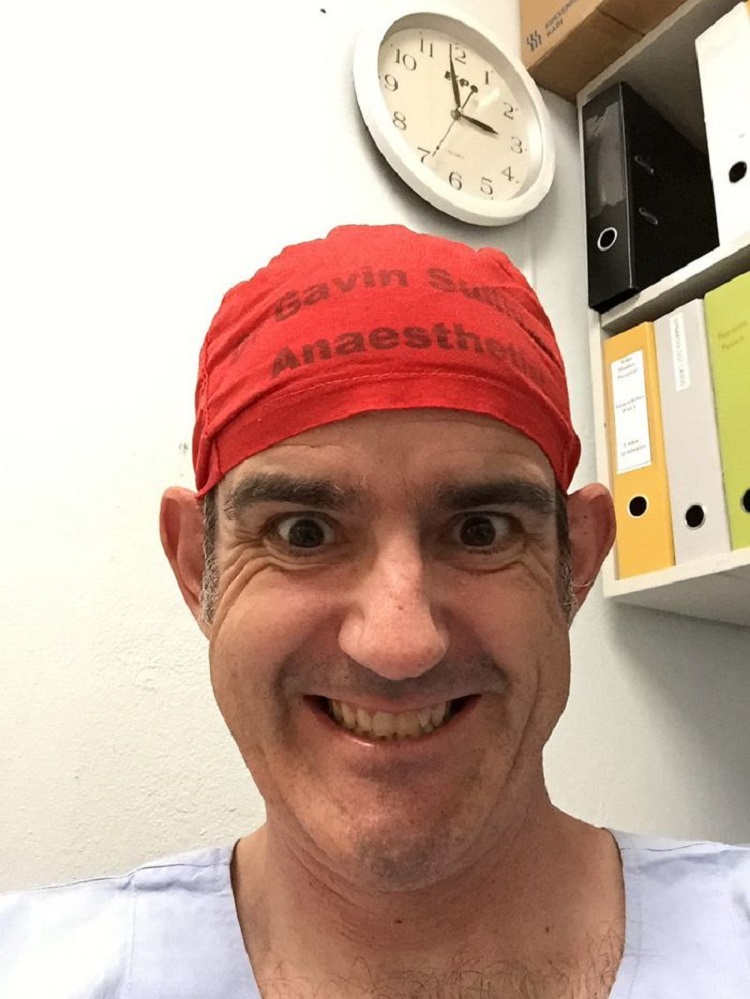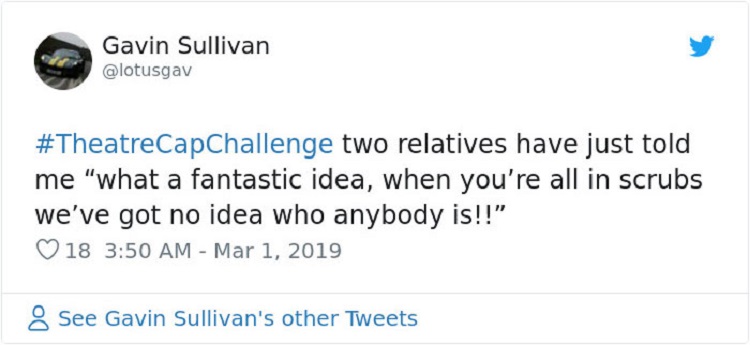Australian anesthetist Dr.
Rob Hackett changed the way doctors view patient safety when he decided to write “Rob … Anesthetist” on his scrub during one operation. One may wonder how such a simple act can make a big difference, Dr. Hackett explains that it helps avoid confusion, especially during critical surgical operations.
He said, “The #TheatreCapChallenge is an initiative from the PatientSafe Network in response to concerns about how easily avoidable mistakes and poor communication are contributing to rising adverse events for our patients. It has been adopted around the world with studies from the US and UK demonstrating how this simple idea can decrease human errors in healthcare.”
His colleagues found the idea laughable at first. “There were some snide remarks, like ‘can’t you remember your name?’” Dr. Hackett said. But a year later, the practice has become a trend in hospitals around the world.
Medical professionals have shown their support by tweeting selfies with their names on their own caps with the hashtag #TheatreCapChallenge just like what Dr. Hackett originally did. They claim the practice can save precious seconds in life and death situations.
“I went to a cardiac arrest in a theater where there were about 20 people in the room,” Dr. Rob Hackett said. “I struggled to even ask to be passed some gloves because the person I was pointing to thought I was pointing to the person behind them.
“It’s so much easier to coordinate when you know everyone’s names. It’s great for camaraderie and it’s great for patients as well.”
He added: “It’s been great interacting with a networked team of passionate individuals from all over the world. They’re constantly generating data. UK studies have shown increased name recall among staff from 42 to 85%, increased name and role introductions during the surgical safety checklist from 38 to 90%. Simulation studies at Stanford University in the US demonstrated greatly increased communication and theater efficiency.”
Women undergoing cesarean sections may also benefit from knowing the names and positions of the operating room staff around them.
Reusable scrub caps can also help the environment. “A 20-theater hospital will discard over 100,000 disposable caps every year. The caps are made from viscose – a substance whose production is particularly harmful to the environment.”
And be easier on the budget, as well. “A hospital this size may spend somewhere in the region of $10,000 every year on disposable caps.”
The World Health Organization has a surgical safety checklist where all staff is required to introduce themselves before surgery. But in Dr. Hackett’s experience, this part of the checklist was usually seen as a ‘tick-box exercise’ and often disregarded. “When it’s done properly there are a few giggles from people, which tells me it’s not done regularly.”
Like with anything new, Dr. Hackett’s campaign has faced some push-back, often from senior hospital staff. But the anesthetist sees this as a symptom of the inertia the health system has when it comes to change.
“Cognitive dissonance [is one of the challenges] that #TheatreCapChallenge has faced,” Dr. Hackett explained. “It’s most likely to affect those who feel defined by their decisions often those further up the chain of command – in accepting the change they’ll need to accept that what was happening previously, on their watch as it were, was not as good.
“Within healthcare, this may mean we have to accept we’ve been hurting people, even killing people for years – often this can be too hard to bear.
“While there’s been support for name & role caps from the anesthetic and obstetric societies, it’s interesting to observe that were yet to receive any active support from a surgical college.
“Here’s a golden opportunity for them to face up to the bullying nature they’ve been tarred with.”
Recommended Video!
“A Mother Struggling To Give Birth For 40 Hours- Then doctor Looks Between Her Legs and Freezes”


